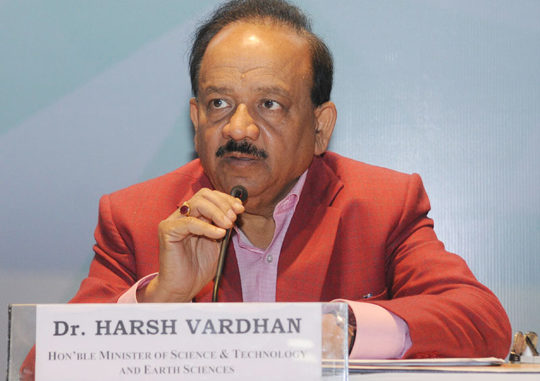
“Scientists should try to find solutions to develop 115 backward districts in the country”, suggested Dr. Harsh Vardhan, Union Minister for Science & Technology, Environment, Forest & Climate Change and Earth Sciences. Addressing scientists at the Hyderabad-based National Geophysical Research Institute (NGRI) under CSIR today, the Minister said that these districts with growth potential, many in the northeast, were neglected in the past. Dr. Vardhan said that scientists and scientific laboratories can contribute to the solution of several developmental issues in these districts. He added that it is time, our scientists gave equal importance to ‘solution science’ from ‘fundamental science’.
Dr Vardhan pointed out that NGRI’s expertise in Heliborne surveys to map mineral and ground water could be utilised to explore natural resources in these districts. NGRI provided technical assistance for Heliborne Survey to the Central Ground Water Board first time in 2013, to carry out aquifer mapping, or mapping the water pools beneath ground in Rajasthan. He appreciated the efforts of NGRI for aligning its research with initiatives of the government.
“There should be synergy among scientific institutions to develop newer technologies to deliver a new India envisioned by Prime Minister Narendra Modi”, Dr. Harsh Vardhan stated. “We have the demographic advantage now, and we should exploit it,” the Minister noted.
Earlier this month, the Prime Minister, Shri Narendra Modi, had convened a meeting of district magistrates of 115 backward districts for their fast-track development. The meeting decided upon six development indicators – health, education, basic infrastructure, agriculture and water resources, financial inclusion and skill development.
